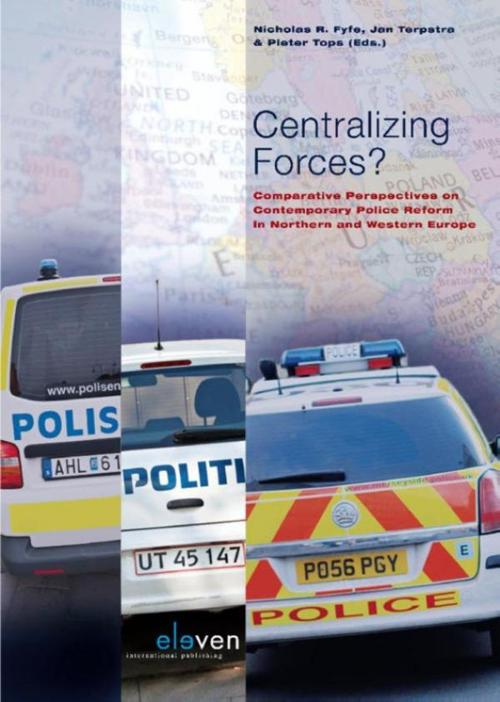Centralizing forces?
comparative perspectives on contemporary police reform in Northern and Western Europe
Nonfiction, Reference & Language, Education & Teaching| Author: | ISBN: | 9789460947599 | |
| Publisher: | Boom uitgevers Den Haag | Publication: | July 31, 2013 |
| Imprint: | Eleven international publishing | Language: | English |
| Author: | |
| ISBN: | 9789460947599 |
| Publisher: | Boom uitgevers Den Haag |
| Publication: | July 31, 2013 |
| Imprint: | Eleven international publishing |
| Language: | English |
Police organizations in several Northern and Western European countries have recently witnessed fundamental reforms to their structures as well as to their relationships with governments. Many (but not all) of these macro-level reforms can be understood as forms of centralization. New or strengthened national police organizations have been created, with new territorial arrangements for delivering police services, involving the establishment of new structures of police governance and accountability. Written by highly experienced researchers, the essays in Centralizing Forces? reveal intriguing similarities and differences in police reform in eight European countries: France, Denmark, Finland, Belgium, England and Wales, Scotland, the Netherlands and Sweden. The chapters examine the nature and dimensions of police reform and the importance of the political, cultural, social and economic contexts in which reform is happening. Despite some significant similarities in the reform process, the book also illustrates that there are important differences in the backgrounds, nature and consequences of police reform. Police reform is therefore strongly context dependent, not only in its underling drivers and motives, but also in its cultural meaning and the resulting problems and challenges. The cumulative product of these insights is evidence of how police reform is strongly linked to changing views about the role of the police in contemporary society, the shifting balance of power relations between key actors, and on political assumptions about the preferred relationships between the public police and national governments. This book therefore provides critical insights into police reform in different national contexts and a snapshot of a dynamic European policing landscape in which the contours of the relationships between police organizations, governments and citizens are being redrawn.
Police organizations in several Northern and Western European countries have recently witnessed fundamental reforms to their structures as well as to their relationships with governments. Many (but not all) of these macro-level reforms can be understood as forms of centralization. New or strengthened national police organizations have been created, with new territorial arrangements for delivering police services, involving the establishment of new structures of police governance and accountability. Written by highly experienced researchers, the essays in Centralizing Forces? reveal intriguing similarities and differences in police reform in eight European countries: France, Denmark, Finland, Belgium, England and Wales, Scotland, the Netherlands and Sweden. The chapters examine the nature and dimensions of police reform and the importance of the political, cultural, social and economic contexts in which reform is happening. Despite some significant similarities in the reform process, the book also illustrates that there are important differences in the backgrounds, nature and consequences of police reform. Police reform is therefore strongly context dependent, not only in its underling drivers and motives, but also in its cultural meaning and the resulting problems and challenges. The cumulative product of these insights is evidence of how police reform is strongly linked to changing views about the role of the police in contemporary society, the shifting balance of power relations between key actors, and on political assumptions about the preferred relationships between the public police and national governments. This book therefore provides critical insights into police reform in different national contexts and a snapshot of a dynamic European policing landscape in which the contours of the relationships between police organizations, governments and citizens are being redrawn.















